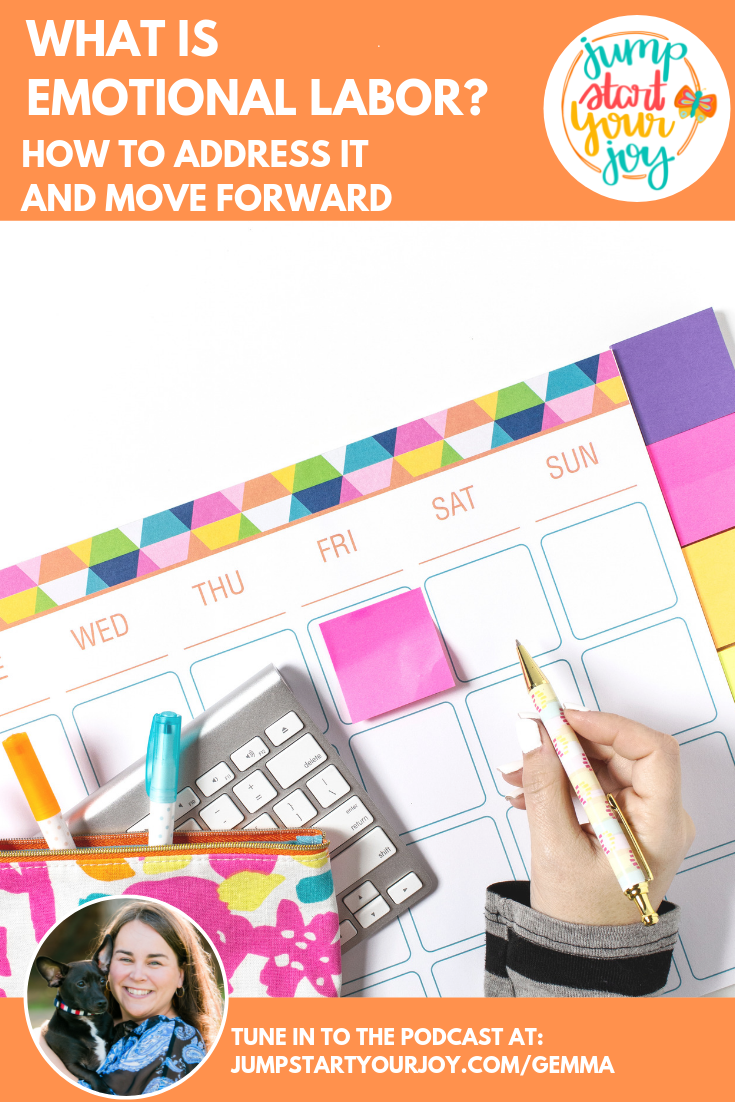Gemma Hartley is the author of” Fed Up: Emotional Labor, Women, and the Way Forward,” and I’m thrilled to have her on the podcast to talk about emotional labor. Defined as “the invisible work women do to keep people around them happy,” emotional labor is a topic that doesn’t get talked about a lot, and often takes a toll on women and relationships. I’m excited that Gemma has opened the door for this discussion by addressing the topic, and offering thoughts on ways to move forward.
The inspiration I found in this book:
I picked up the book, “Fed Up: Emotional Labor, Women, and the Way Forward” at the library, and was hooked when I started reading it. It felt like Gemma Hartley had tapped into something in my brain that I’d assumed was an experience that just a few of us were having; that being that I feel like I am often juggling much of the scheduling, planning, housework, and other “domestic” affairs of our home and don’t really understand how it all got relegated as something I would do.
In my own home, there’s not been a discussion about how this landed in my court, it’s just always been that way. That’s not to say my husband doesn’t do a fair amount. As a professional chef, he has an interest in cooking and shopping, so he takes care of that. That said, I feel that tug of unevenly balanced home based work, and I’m frustrated by having to ask for “help” because I don’t see the work as something that should be just mine to do as a woman. It was really helpful and inspiring to discover that there are other people frustrated by this, and, that there is a way to talk about it that doesn’t devolve into an argument.
The action that Gemma describes on how to move forward:
What comes out of the book (and our interview) is that society has not had the vocabulary or language to talk about emotional labor. It’s something that’s been a part of the gender roles and fabric of our society. I love that in her research for the book, Gemma explored the work of Betty Friedan, Brigid Schulte, and Gretchen Rubin (amongst others) in reaching her proposal on how to do things differently:
- Have conversations with your partner about emotional labor. Instead of focusing on the chore or task that you’re frustrated about (ie that you are frustrated by having to ask for help with the dishes), discuss emotional labor itself.
- Look at what’s bringing you joy in the work you’re doing, and at the same time, look for what you can let go of. If you enjoy some of the tasks you’ve assumed, continue them. If some don’t serve you or bring you stress, let them go.
- Have discussions about what responsibilities can be shifted in some way. What items can you delegate and be OK that they might be done differently than you’d do them?
Discuss what Gemma calls “shared standards” with your partner. How are things done? Do you have different definitions of what completing a task means? Get clear on how your are defining your standards and reach common ground on them. - Allow for space with your partner. Understanding each other means that you give each other the room to do things your own way.
- Keep returning to the discussion of emotional labor, as needed. The current roles that you are both fulfilling were not set up overnight, and a reset will take some time. You will need to stay in communication about how it’s going and work together to make the shift.
Resources
Gemma Hartley’s Website
Gemma Hartley’s original article “Women aren’t Nags, we’re just Fed Up” on Harpers Bazaar
Fed Up: Emotional Labor, Women, and the Way Forward by Gemma Hartley on Amazon
[smart_podcast_player]



